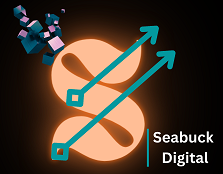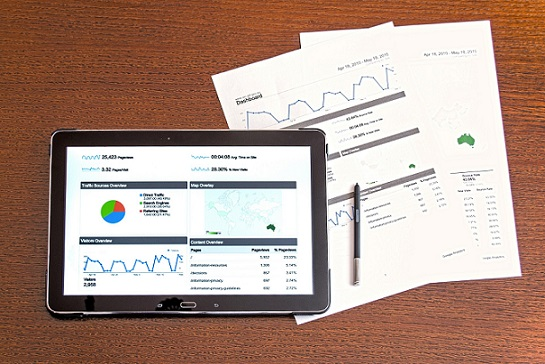
What is the definition of Digital Marketing?
This is 2023 and digital marketing still holds the most important position in the field of marketing.
Are you looking forward to a definitive guide to digital marketing?
Well! Look no further and straight away dive deep into the subject. The article encapsulates the important facets of digital marketing.
Digital marketing is a term used to define the process of using digital resources to promote and market products or services.
It encompasses all of the strategies used to reach potential customers through electronic media, such as websites, email, search engine optimization, and social media. By leveraging these digital resources, businesses are able to create targeted campaigns that attract customers and convert leads into sales. Digital marketing is a powerful tool that can be used to reach a wider audience and build brand loyalty.
In India, it was observed that there is a growing trend in the allocation of advertising and marketing spending from 2016 to 2022. The share of marketing spending in the digital field was 30 percent in 2021 and it is now predicted to reach 38 percent in 2023.

What is the importance of Digital Marketing?
In today’s world, digital marketing has become an integral part of many businesses. The main importance of digital marketing is that it is a more cost-effective way to advertise and reach a larger audience.
Digital marketing also allows businesses to track their success and target potential customers in ways traditional print or TV advertisements cannot.
With the ability to capture customer data and analyze it, businesses are able to determine the best methods to optimize their marketing efforts. This gives businesses the opportunity to create more personalized campaigns that are tailored to their specific audiences, leading to a better customer experience and higher ROI.
According to a survey carried out in the US in the first half of 2021, it shows that 41 percent of US advertisers chose influencer marketing as the more important marketing strategy.
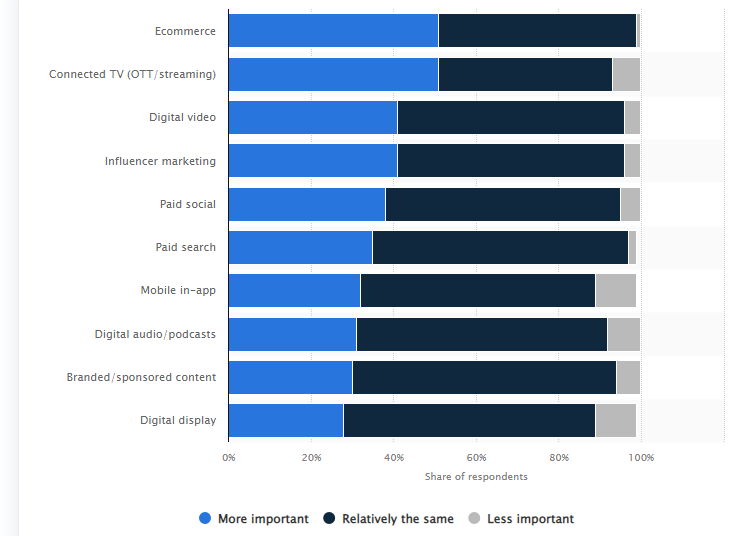
Brand awareness
Brand awareness is an important part of digital marketing as it helps to differentiate a product or service from other similar products or services.
Companies can use digital channels to create engaging content that will help build brand recognition and loyalty with their target audience. Additionally, digital marketing can be used to track the performance of campaigns, measure customer engagement, and provide valuable insights into customer behavior. This data can be used to tailor future campaigns for maximum success.
A survey that was conducted in the third quarter of 2021 shows that in Japan 43.5 percent of internet users have discovered new brands by the method of search engines.
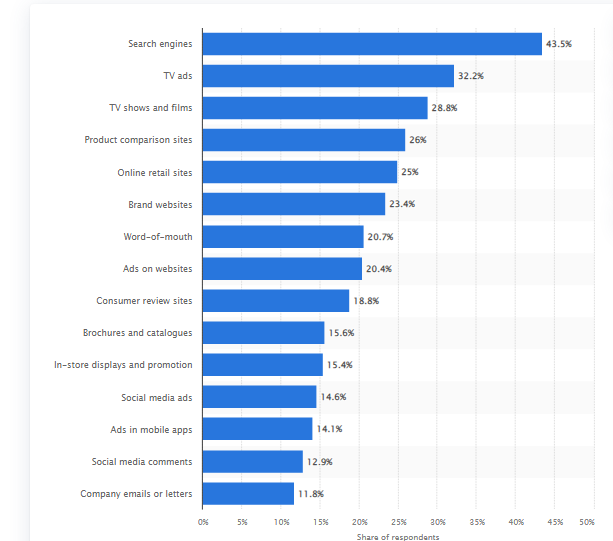
What is the difference between B2B and B2C digital Marketing?
Business-to-business (B2B) and business-to-consumer (B2C) digital marketing are two distinct approaches to digital marketing.
- While both B2B and B2C digital marketing share a common goal of increasing brand awareness and driving sales, there are several key differences between the two.
- B2B digital marketing focuses more on building relationships with businesses and finding the right target market, while B2C digital marketing is more about using personalization tactics to appeal to individuals.
- B2B digital marketing also relies heavily on SEO and content marketing to build trust, whereas B2C digital marketing relies more on social media campaigns and creative visuals.
Ultimately, the goal of each type of digital marketing is to reach the target audience with the right message, no matter which type of customer is being targeted.
80 percent of both B2B and B2C companies uses Google Ads (source: WebFX). This goes to show how important digital marketing is for both forms of business.
Types of Digital Marketing
There are 12 types of digital marketing which are explained below.
Search engine optimization (SEO)
Search engine optimization (SEO) is an essential part of digital marketing as it helps to improve visibility and increase website traffic.
SEO involves optimizing web content and website architecture to ensure that it can be easily crawled, indexed and ranked by search engines. SEO also includes improving website structure, developing high-quality content, and using keywords strategically to target the right audience. SEO can help to create brand awareness and increase website visibility, both of which are key for successful digital marketing campaigns.
Search engine marketing (SEM)
Search engine marketing (SEM) is a digital marketing strategy that involves increasing a website’s visibility on search engines using tactics such as search engine optimization (SEO) and paid positioning.
SEM involves the use of both organic and paid methods to improve website rankings, driving more traffic and ultimately more conversions. SEO focuses on optimizing a website’s content and structure to best match search engine algorithms, while paid positioning involves the use of ads to drive traffic to a website. Utilizing both SEO and SEM can provide a business with greater visibility on search engines, helping them drive more traffic and conversions.
Social media marketing
Social media marketing is the use of various social media platforms to promote a product, service, or brand. It is a form of digital marketing.
It involves creating and sharing content on social networks such as Facebook, Twitter, Instagram, and LinkedIn in order to reach and engage with customers. Social media marketing relies on the use of creative, interesting content that encourages users to engage with a brand or product in a positive way. From creating brand awareness to driving sales, social media can be used to accomplish many goals for businesses of all sizes.
Content marketing
Content marketing is a type of digital marketing that focuses on creating and distributing valuable, relevant, and consistent content to attract and retain a clearly defined audience—and ultimately, to drive profitable customer action.
Content marketing can also be referred to as inbound marketing, where marketers look to “pull” customers into their brand instead of having to go out and “push” their product or service onto customers.
Examples of content marketing include blog articles, ebooks, webinars, podcasts, infographics, and videos. It is important for businesses to maintain a regular content marketing strategy in order to attract, engage and retain customers.
Pay-per-click marketing
Pay-per-click (PPC) marketing is a type of digital marketing where the advertiser pays each time their ad is clicked. It is one of the most popular forms of digital advertising and enables advertisers to target potential customers at a very precise level.
PPC campaigns are relatively easy to set up and manage, allowing advertisers to quickly launch campaigns with minimal effort. Furthermore, PPC campaigns provide a great return on investment by ensuring that companies only pay for users that have a genuine interest in their product or service.
Affiliate marketing
Affiliate marketing is an online marketing method that allows businesses and individuals to earn a commission by promoting goods and services.
Through various tactics, such as advertising and email marketing, affiliates can earn a commission on sales that they generate. Affiliate marketing is a great way for businesses to gain exposure while also providing benefits to their affiliates. This can help drive traffic, leads, and sales to businesses while also allowing affiliates to potentially earn income in the process.
Native advertising
Native advertising is an effective form of digital marketing that uses content tailored to an audience in order to promote a brand.
It differs from traditional advertising in that its content is designed to blend in with the user experience, making it less intrusive than banner ads. Native advertising has become increasingly popular in recent years, as brands look to create meaningful connections with consumers through custom content.
Content marketing and native advertising work together as a powerful combination to raise brand visibility, increase conversions, and build customer relationships.
Influencer marketing
Influencer marketing is a form of the social media marketing that involves working with key individuals, groups, and organizations to promote your brand’s message, products, or services.
These influencers have a large following and can be used to create an engaged community around your brand. It can be used to create awareness and increase sales by connecting with the right audience.
Influencer marketing is an effective way to reach potential customers, as it can spread quickly through social media channels and has the potential to generate more sales and engagement.
Marketing automation
Marketing automation is an effective way to engage with customers and optimize a business’s overall performance.
By automating processes and using data-driven insights, businesses can maximize their marketing efforts through automated campaigns, customer segmentation, lead scoring, and analytics.
Automated marketing campaigns allow businesses to personalize customer experiences without manually managing each individual customer interaction. Additionally, automated marketing efforts can be tracked with analytics to inform future campaigns and target specific customer demographics.
Email marketing
Email marketing is a form of direct marketing that uses email to send promotional messages to a targeted audience.
It is an important part of any business’s marketing strategy. It allows you to build a relationship with your customers, increase brand awareness, and ultimately drive sales. It’s one of the most cost-effective ways to reach a large number of people.
Mobile Marketing
Mobile marketing is a type of advertising that helps you reach a mobile audience by delivering your marketing message on a mobile device.
Mobile marketing can include text messaging, email marketing, apps, and push notifications. It has become a vital part of marketing strategies for businesses of all sizes. With the growth of mobile devices, mobile marketing is a key element in today’s digital marketing business.
Video Marketing
Video Marketing is a great way to promote your business or product or service using video as a tool.
You can create video ads to create engagement with your mass audience as masses are more responsive to video than to text. Video marketing is a great way to increase brand awareness and sales. It’s a tool that can be used to increase brand awareness, increase sales, and build customer loyalty.
Having discussed the types of channels that marketers use in recent years, I must admit that SEO (Search Engine Optimization) is not the leading channel of marketing worldwide. The below chart shows the most popular digital marketing channels marketers prefer. Can you guess what that is?
Yes, you have guessed it correctly. It is Social Media. A study conducted based on B2B and B2C marketers located in Australia, Canada, France, Germany, Japan, the United Kingdom, and the United States shows that 44 percent of the marketers have indented Social Media as the most popular channel of marketing.
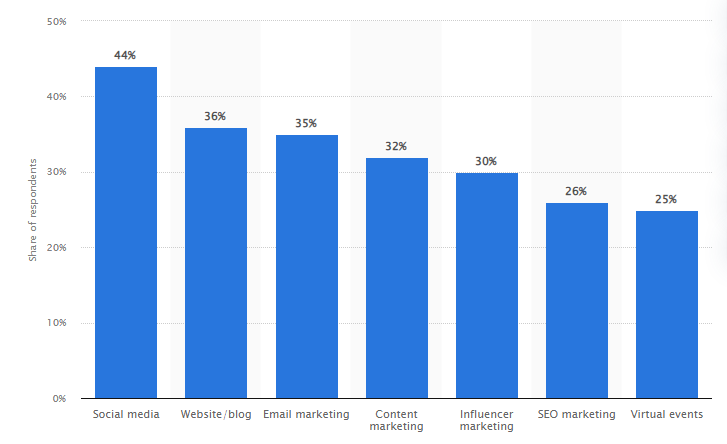
6. What are the KPIs (Key Performance Indicators) in Digital Marketing?
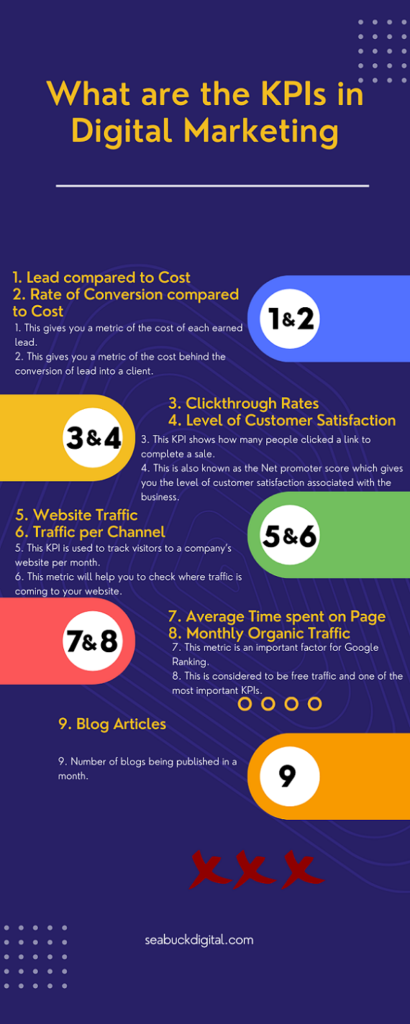
Lead compared to Cost
This gives you a metric of the cost of each earned lead.
Rate of Conversion compared to Cost
This gives you a metric of the cost behind the conversion of lead into a client.
Clickthrough Rates
This KPI shows how many people clicked a link to complete a sale.
Level of Customer Satisfaction
This is also known as the Net promoter score which gives you the level of customer satisfaction associated with the business.
Website Traffic
This KPI is used to track visitors to a company’s website per month. You can get more intricate data from Google Analytics like visitors in pages, visitors in product categories, visitors by price filters, visitors in landing pages, and visitors on the blog.
Traffic per Channel
This metric will help you to check where traffic is coming to your website. It could be Organic Search, Direct, Referral, Social, Email, Display, or Paid Search.
Average Time spent on Page
This metric is an important factor for Google Ranking. The more time a user spends on a page means the page provides all the information the user needs.
Monthly Organic Traffic
This is considered to be free traffic and one of the most important KPIs. It shows the number of visitors who are accessing your site via Google search.
Blog Articles
Number of blogs being published in a month.
What are the benefits of digital marketing?
Below are the benefits:
- A Powerful Tool: Digital marketing is an incredibly powerful tool for businesses in the 21st century.
- A Broader Reach: Digital marketing allows companies to reach a much wider audience than traditional marketing methods.
- A Cost-Efficient Approach: It can be done quickly and cost-effectively.
- A Quantitative Approach: Digital marketing also provides businesses with valuable data that can be used to analyze their campaigns and target their desired demographics.
- Digital marketing is more interactive than traditional methods, allowing for better engagement and providing customers with the opportunity to give feedback quickly and easily.
What are the strategies of Digital Marketing?
A digital marketing strategy is a well-executed plan where marketers effectively utilize various online channels like Search Engines, Social Media, Paid Ads, and other online mediums to increase brand awareness and pull customers to the brand.
You could follow the below steps in building an effective digital marketing strategy.
Create Buyer Personas
Marketers and businesses target potential customers through extensive market research, market survey, and sample interviews. This real data helps to create an ideal buyer persona. This helps marketers to design their marketing policies and effort in the right direction.
Recognize your goals and digital marketing tactics and tools that you need to execute
You must realize that your online marketing goals should be streamlined with your basic business goals. You need to select the right kind and relevant digital marketing tools. The right kind of tools will help you to measure your success at the end of the day.
You need to appraise your existing digital assets
You need to review and measure your existing marketing channels and assets. You have to segregate those channels and assets that you have owned, the media you have earned, and the media that you are paying for.
Evaluation will help you to understand the new assets that you need and the old ones you need to remove for your success. It will also help you to understand the time, money, and other valuable resources that you need to deploy in order to incorporate these new assets into your business.
Audit your content marketing strategy
Audit will help you in identifying those content marketing strategies which are working and those that are not working. The audit will help you to minimize the existing content gap in comparison to your competitors. This will make the content creation plan much easier and more efficient.
Audit your earned media campaigns
By auditing tools like traffic analytics tool you will measure the traffic from various sources like Direct Traffic, Organic Search, Email Marketing, Referrals, Social Media, Paid Socials, Paid Search, and other campaigns. This will help you steer your marketing effort and focus on those areas which are helping to achieve your business goals and objectives.
Audit your paid media campaigns
You need to measure and evaluate the performance of your paid media platforms like Facebook, Twitter, LinkedIn, Google Ads, etc. Through this evaluation, you can decide where to curtail your investment. The audit will also help you to decide on the platforms you need to continue with to sustain your success.
Integrate your marketing campaigns
Now you can draw and chalk out a well define monthly digital marketing plan.
To end with the discussion on effective digital marketing strategy, you can please check out the below statistics on the most effective techniques used by digital marketers around the globe in 2020.
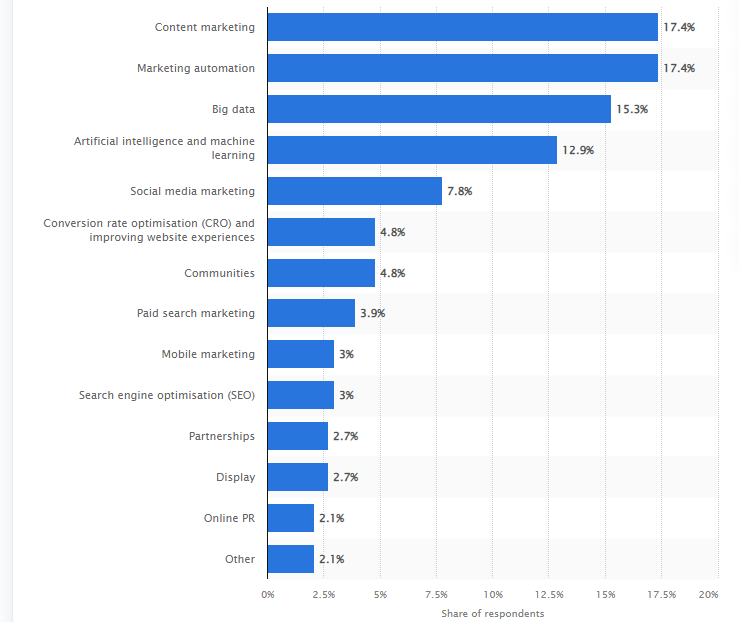
The chart above clearly shows that the content marketing technique is the most effective technique used by current businesses. The survey shows about 17 percent of global marketers believed to be deploying and preferring content marketing strategy over other marketing techniques.
What are the challenges of Digital Marketing?
Below are the challenges of digital marketing.
- Time-Consuming: A continuous process of creation of content takes time. Content creation is done by optimizing a company’s time-consuming marketing strategy.
- Competitive: Making a brand stand apart from others is a daunting task. Competition with other Ads is really challenging.
- Privacy of Data: The company often uses its own data to target consumers and there comes data privacy laws.
- Ever-evolving Technology: Marketers have obligations to make user-friendly technology so that consumers’ journey to decision-making becomes easy.
FAQs – Frequently asked questions about digital marketing
What Is a Digital Marketing Agency?
Answer: A digital marketing agency is a company or agency that specializes in providing digital marketing services, such as search engine optimization, content marketing, social media marketing, and website design. Digital marketing agencies provide a wide range of services to their clients, helping them to draw in more customers and increase their online visibility. By leveraging the expertise of a digital marketing agency, businesses can maximize the return on their advertising investment.
How Can I Become a Digital Marketer?
Answer: If you’re interested in learning more about digital marketing and how to effectively use it for your business, there are a few routes you can take. Taking courses, such as those offered by popular online platforms, can be helpful to learn the basics and start getting some hands-on experience. Alternatively, you can find digital marketing professionals who offer consulting services and can guide you through the process. Lastly, attending conferences and seminars that focus on digital marketing is also a great way to stay up-to-date on trends and gain valuable insights.
What Skills Are Needed in Digital Marketing?
Answer: In order to be successful with digital marketing, there are certain skills that are needed. An understanding of how to use various digital marketing platforms and how to craft effective campaigns for each one is essential. Additionally, knowledge of website design, analytics, and search engine optimization (SEO) is key to being able to develop a successful digital marketing strategy. Being able to effectively measure and analyze results from campaigns is an important skill for any digital marketer, as it allows them to make the most informed decisions about their strategies.
Why do I need digital marketing?
Answer: Digital marketing is a must-have for businesses in the modern era. It not only allows companies to reach more people than ever before but also provides detailed data that can be used to further refine and customize campaigns. Additionally, digital marketing gives customers an interactive platform to engage with and provide feedback, allowing for more responsive customer service. Ultimately, digital marketing is essential for businesses seeking to stay ahead of the competition and maximize their reach.
How Much Will Digital Marketing Cost My Business?
Answer: The cost of digital marketing for businesses varies greatly depending on the size of the business, the type of marketing strategy being used, and the number of resources available. For smaller businesses, it may be possible to execute a digital marketing strategy with minimal costs, while larger businesses may need to invest more money. However, digital marketing is often more cost-effective than traditional methods, as it reaches a wider audience and provides more detailed data that can be used to refine campaigns. Ultimately, digital marketing is a great investment for any business looking to expand its reach and maximize its potential.
What’s the future of digital marketing?
Answer: The future of digital marketing looks very bright. As technology continues to evolve, businesses will be able to reach even more customers, target their desired demographics more accurately, and fine-tune their strategies for maximum efficiency. Additionally, digital marketing will become more interactive, allowing customers to engage with companies quickly and easily. Ultimately, digital marketing will continue to be a powerful tool for businesses seeking to stay ahead of the competition.
What channels make up digital marketing?
Answer: Main 12 channels that make up digital marketing are Search Engine Optimization (SEO), Search Engine Marketing (SEM), Content Marketing, Email Marketing, Social Media Marketing, Video Marketing, PPC (Pay-per-click Advertisement), Affiliate Marketing, Influencer Marketing, Referral Marketing, Mobile Marketing, and Display Advertisement.
